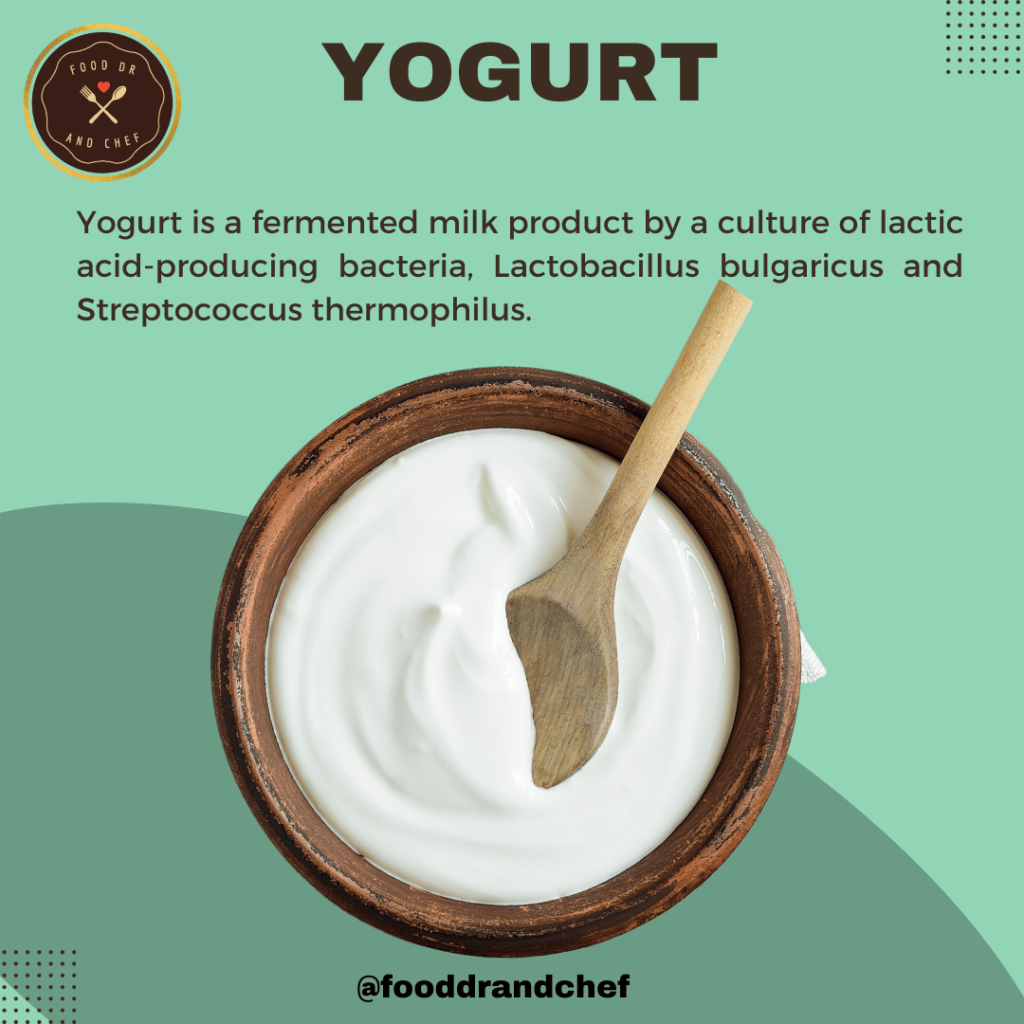Milk and dairy products are vital sources of essential nutrients for human life, especially during early childhood (1). One of the oldest and most effective methods for preserving milk and extending its shelf life is milk fermentation (2). This process has been widely used throughout history, not only to enhance the texture and aroma of dairy products but also to increase their health benefits (1).
Yogurt, an ancient dairy product, is consumed worldwide, with approximately 700 different varieties (3). The diversity of yogurt types is due to variations in processing conditions and milk composition. Set yogurt, for example, is incubated in containers, which helps preserve its gel-like structure, while blended yogurt is first incubated in large fermentation vessels, then mixed to create a smooth, viscous product before being packaged into smaller containers (4).
Yogurt is popular among consumers due to its nutritional value and the presence of bioactive peptides, prebiotics, and probiotics, which contribute to its many health benefits (5).
Nutritional Composition of Yogurt Varieties (2, 6).
| Component (per 100 g) | Whole milk yoğurt (a) | Low-fat yoğurt (a) | Non-fat yoğurt (a) | 3.25% milk fat content(b) |
| Energy (kcal) | 79 | 56 | 54 | 60 |
| Protein (g) | 5.7 | 4.8 | 5.4 | 3.2 |
| Carbohydrate (g) | 7.8 | 7.4 | 8.2 | 4.8 |
| Fat (g) | 3.0 | 1 | 0.2 | 3.3 |
| Thiamin (mg) | 0.06 | 0.12 | 0.04 | 0.1 |
| Riboflavin (mg) | 0.27 | 0.22 | 0.29 | 0.2 |
| Niacin (mg) | 0.2 | 0.1 | 0.1 | 0.1 |
| Vitamin B6 (mg) | 0.1 | 0.01 | 0.07 | 0.1 |
| Vitamin B12 (mg) | 0.2 | 0.3 | 0.2 | 0.011 |
| Folate (μg) | 18 | 18 | 8 | 5 |
| Carotene (μg) | 21 | Trace | Trace | 10.2 |
| Potassium (mg) | 280 | 228 | 247 | 143 |
| Calcium (mg) | 200 | 162 | 160 | 113 |
| Phosphorus (mg) | 170 | 143 | 151 | 91 |
Yogurt is a nutritious, easily digestible dairy product that is a rich source of more than ten essential nutrients, including vitamins and minerals. Its nutritional composition can vary depending on factors such as the starter culture strains used for fermentation, the type of milk (whole, semi, or skim), and the breed of the animal providing the milk (2).
While the exact composition may differ, yogurt generally mirrors the nutritional profile of milk. It is an excellent source of high-quality milk proteins, carbohydrates, minerals like calcium and phosphorus, and essential vitamins such as riboflavin (B2), thiamine (B1), cobalamin (B12), folate (B9), and niacin (B3). The proteins in yogurt are particularly beneficial due to their high biological value, providing nearly all the essential amino acids required for optimal health (2). In addition to its protein content, the milk proteins in yogurt also support various bodily functions, such as enhancing calcium absorption and strengthening the immune system (2). The main carbohydrate in yogurt, as in milk, is lactose, which constitutes about 4.6% of raw milk (2).
Yogurt is formed through the fermentation process, where lactic acid bacteria (LAB) play a crucial role. These living bacteria contain lactase (β-glucosidase), which breaks down lactose into glucose and galactose during fermentation (7, 8). As a result, yogurt contains 20-30% less lactose compared to raw milk, making it easier to digest for people with lactose intolerance, reducing symptoms like gas and diarrhea (7, 2).
These beneficial lactic acid bacteria and their metabolites help regulate the intestinal flora and maintain overall health. They enhance both intestinal and systemic immunity, offering significant probiotic benefits that have gained increasing recognition in recent years (7, 8).
The vitamins and minerals found in milk and dairy products, including yogurt, are in bioavailable forms that are easily absorbed by the body. When compared to other dairy products, yogurt is an exceptional source of B vitamins, particularly riboflavin and thiamine. For example, a 150g serving of full-fat plain yogurt provides 31% of an adult’s daily riboflavin needs, while low-fat yogurt provides 30%. Additionally, yogurt meets at least 23% and up to 45% of the daily thiamine requirement for adults, depending on the type (2). Furthermore, a 50g serving of yogurt can meet 41% of a 5-year-old child’s daily calcium needs (2).
Yogurt’s Role in Health
Numerous dietary studies suggest that yogurt consumers tend to have higher-quality diets, greater satisfaction with their food choices, and more balanced nutrition. This may explain the numerous health benefits associated with regular yogurt consumption. Research has shown that eating yogurt is linked to a reduced risk of obesity, metabolic syndrome, and type 2 diabetes. It also has positive effects on blood pressure and plasma lipid levels, contributing to a lower cardiovascular risk (8). Additionally, the consumption of fermented milk and yogurt has been shown to benefit bone health by reducing the risk of osteoporosis and may even be associated with a lower risk of colorectal cancer (8).
Author Kubra Haktan
REFERENCES
- T.H.Nguyena, H., L.Gathercole, J., & etc, a. (2020). Differences in peptide generation following in vitro gastrointestinal digestion of yogurt and milk from cow, sheep and goat. Food Chemistry.
- Weerathilake, W., Dissanayake, D., & etc, a. (2014). The evolution, processing, varieties and health benefits of yogurt. International Journal of Scientific and Research Publications.
- HeenaSharmaa, Rassi, G. D., & etc, a. (2021). Comparative analysis of metabolites in cow and goat milk yoghurt using GC–MS based untargeted metabolomics. International Dairy Journal.
- Ye, S. L., & Singh, H. (2021). Effects of seasonal variations on the quality of set yogurt, stirred yogurt, and Greek-style yogurt. Journal of Dairy Science, 1424-1432.
- B.Ribeiro, T., & Bonifácio-Lopes, T. (2021). Incorporation of olive pomace ingredients into yoghurts as a source of fibre and hydroxytyrosol: Antioxidant activity and stability throughout gastrointestinal digestion. Journal of Food Engineering.
- Anonim. (2018). Milk, whole, 3.25% milkfat. Nutrition Data know what you eat: https://nutritiondata.self.com/facts/dairy-and-egg-products/69/2
- Yang, S., Yan, D., Zou, Y., & etc, a. (2021). Fermentation temperature affects yogurt quality: A metabolomics study. Food Bioscience.
- Lecerf, J.-M. (2020). Particularités et bienfaits des yaourtsCharacteristics and benefits of yogurts. Médecine des Maladies Métaboliques, 699-705.

